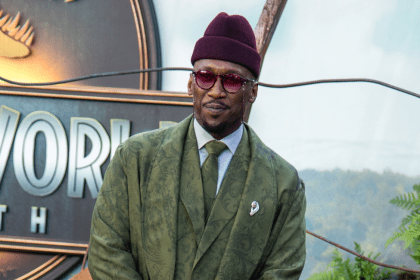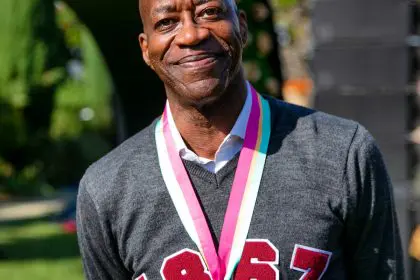The entertainment industry has evolved beyond mere spectacle to become a powerful medium for preserving and sharing authentic Black experiences. Through carefully crafted narratives and compelling performances, modern films and television series are illuminating previously overlooked chapters of American history, creating deeper understanding and fostering important conversations about race, identity, and social justice.
Muhammad Ali’s Atlanta comeback
The upcoming limited series featuring Kevin Hart, Samuel L. Jackson, and Taraji P. Henson explores an intriguing intersection of sports and social history. Set against the backdrop of Muhammad Ali’s 1970 boxing comeback in Atlanta, the narrative delves into the complex world of Gordon “Chicken Man” Williams and his ill-fated gathering of prominent figures. This multilayered story exemplifies how personal ambition, social dynamics, and historical moments often converge in unexpected ways. The production promises to shed new light on a pivotal moment in both sports and cultural history, highlighting the intricate relationships within Atlanta’s Black community during this transformative period.
Selma
Selma transcends traditional historical drama by capturing the intensity and strategic complexity of the voting rights movement. David Oyelowo’s nuanced portrayal of Dr. Martin Luther King Jr. reveals both the public figure and the private individual, offering insights into the psychological toll of leadership during this crucial period. The film meticulously recreates the atmosphere of tension and determination that characterized the historic marches from Selma to Montgomery, demonstrating how collective action and personal sacrifice drove social change. Its relevance extends beyond historical documentation, serving as a blueprint for understanding modern civil rights movements.
Judas and the Black Messiah
Judas and the Black Messiah presents the compelling story of Fred Hampton’s leadership in the Chicago Black Panther Party with unflinching honesty. Daniel Kaluuya’s Oscar-winning performance brings to life Hampton’s charismatic presence while exposing the systematic efforts to suppress Black liberation movements. The film delves deep into the complex relationships between community organizing, law enforcement infiltration, and the price of activism. This narrative reveals how fear of Black unity led to tragic consequences, while also highlighting the enduring impact of Hampton’s vision for community empowerment and social justice.
The Tulsa Race Massacre
HBO’s Watchmen broke new ground by opening with a devastating portrayal of the Tulsa Race Massacre, introducing many viewers to this dark chapter of American history. The series’ bold decision to confront this historical tragedy head-on sparked widespread interest in learning about the destruction of Black Wall Street and its lasting impact on African American communities. By weaving this historical event into its narrative, the show demonstrates how entertainment can serve as a catalyst for historical awareness and social consciousness, prompting viewers to explore the real-world events that inspired the dramatic portrayal.
Hidden Figures
Hidden Figures celebrates the extraordinary achievements of Katherine Johnson, Dorothy Vaughan, and Mary Jackson, whose mathematical brilliance proved crucial to America’s space program. The film goes beyond simply documenting their professional accomplishments, exploring the personal sacrifices and daily challenges these women faced in their pursuit of excellence. Their story illuminates the often-overlooked contributions of Black women to American scientific achievement, while also highlighting the intersectionality of race and gender discrimination in the workplace. The film’s impact extends beyond entertainment, inspiring a new generation to pursue careers in STEM fields while acknowledging the pioneers who paved the way.
Jackie Robinson
The film 42 captures the monumental struggle of Jackie Robinson’s integration into Major League Baseball with both historical accuracy and emotional depth. Chadwick Boseman’s portrayal brings to life the immense psychological and emotional toll of breaking baseball’s color barrier, while also celebrating Robinson’s extraordinary resilience and dignity in the face of systemic racism. The film demonstrates how Robinson’s courage catalyzed integration across American sports and society at large, making it a crucial story for understanding both athletic and social history.
Malcolm X
Spike Lee’s masterful direction in Malcolm X, combined with Denzel Washington’s transformative performance, creates a comprehensive exploration of one of America’s most complex leaders. The film traces Malcolm’s evolution from street hustler to global human rights advocate, challenging viewers to engage with the nuances of his philosophy and legacy. By examining Malcolm’s personal transformation alongside his political evolution, the film provides valuable insights into the diverse approaches to civil rights activism and the ongoing struggle for racial justice.
















